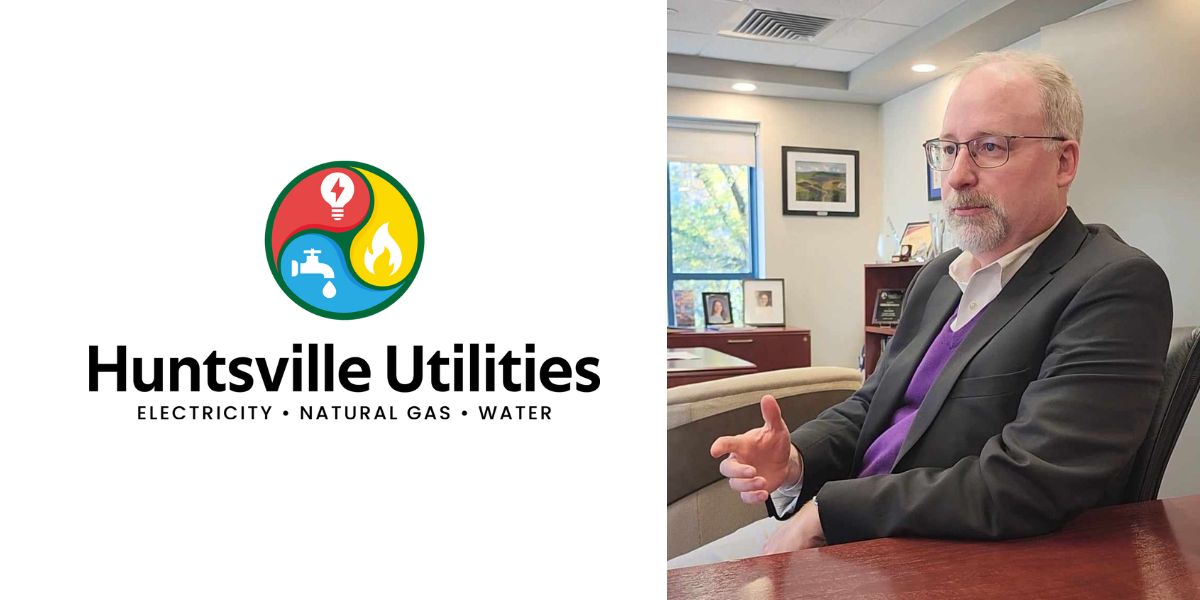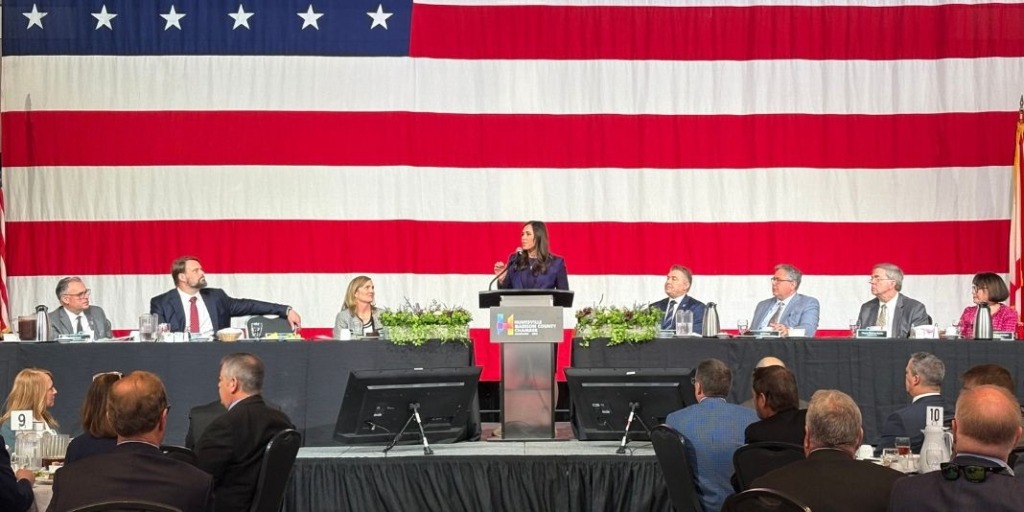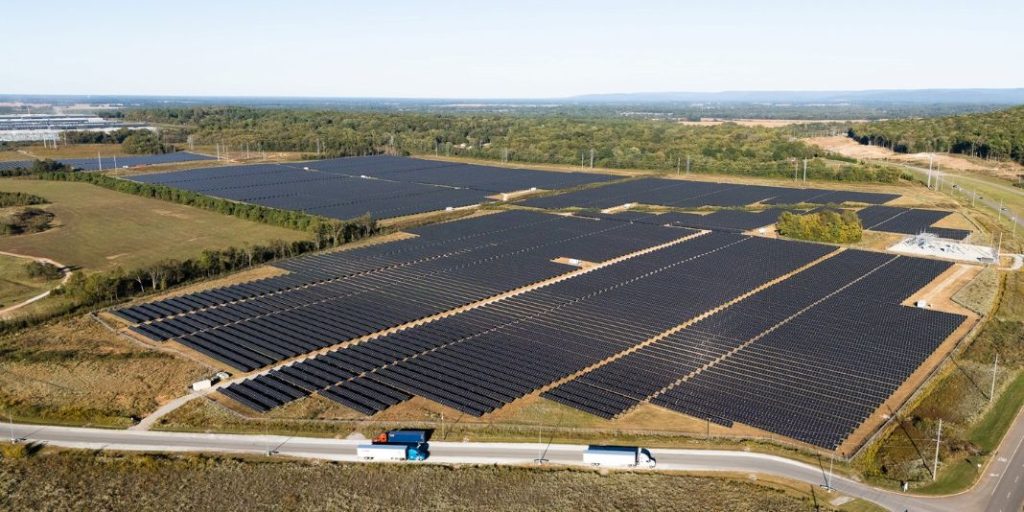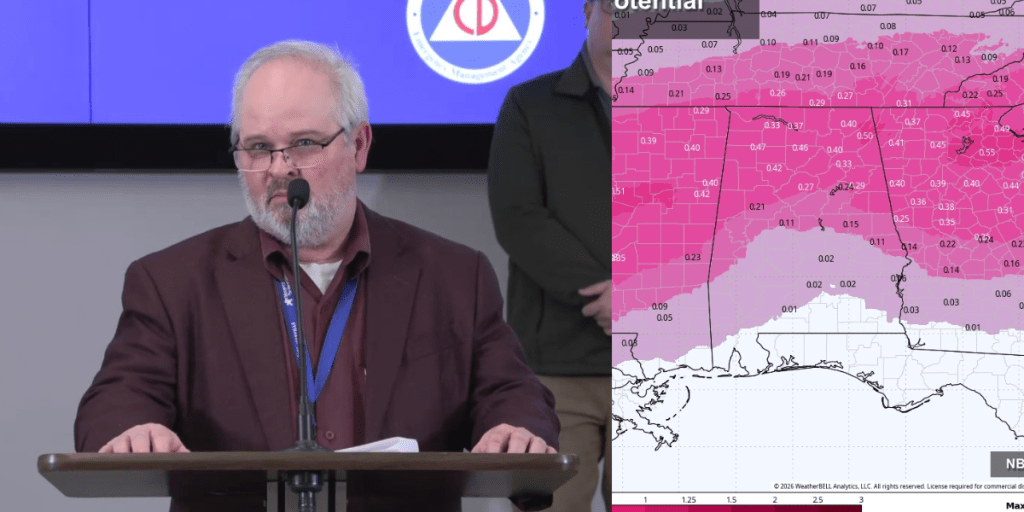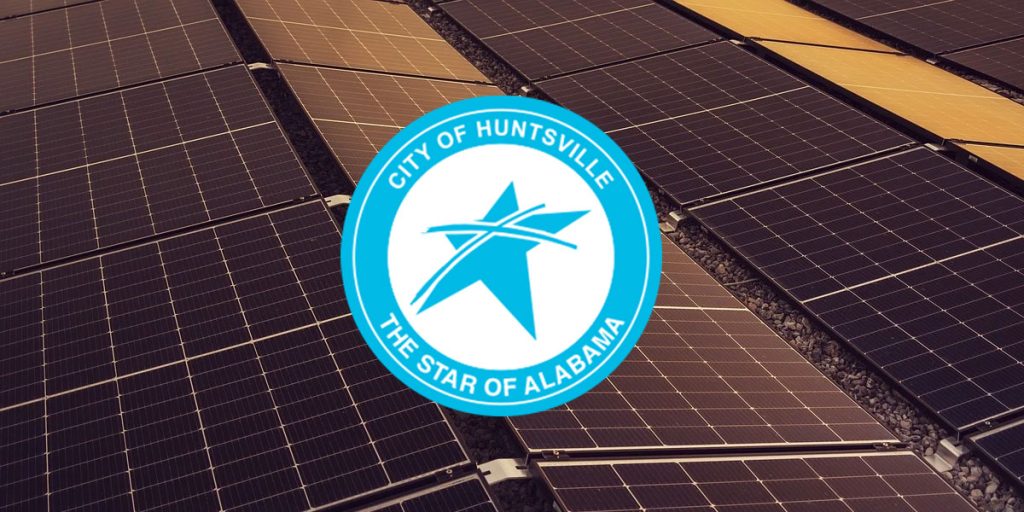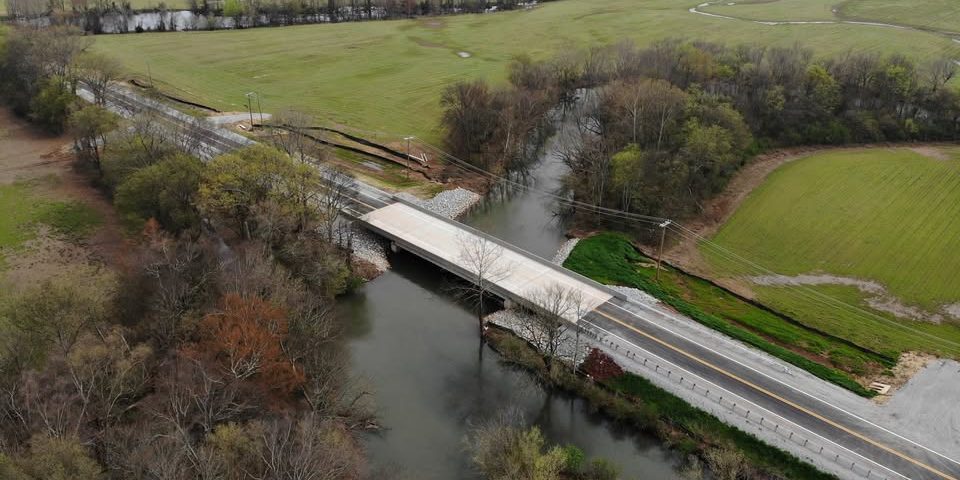HUNTSVILLE – A task force has been created to develop a forward-looking approach to energy planning in Huntsville.
Wes Kelley, CEO of Huntsville Utilities, sat down with 256 Today to discuss the task force and the Community Energy Resource Plan.
“We need to develop technologies and solutions that we’re working together to reduce energy burden, creating energy resiliency, and doing so in a sustainable way,” said Kelly.
Working with consulting engineering firm Black & Veatch, a 12-member Energy Task Force will create a Community Energy Resource Plan to guide the city’s energy strategy into the future.
Kelley said CERP takes on a broader concept of what is our energy future.
“That it is customer generation, it’s customer storage, it’s utility activities beyond our relationship, but in concert with our relationship with TVA to provide more resilient and affordable and sustainable energy,” he said. “But a lot of our commercial customers are saying, hey, if I put solar on my rooftop, does that advantage me? What if I put in a backup power generator for when a big storm rolls through, but the utility runs that when you need to save money on Huntsville Utilities power bill to TVA.
“So we start operating customer generation to help the utility run more efficiently.”
Kelley said the energy plan is looking for numerous solutions, like pieces in a puzzle.
“Battery storage customers that want to put in large battery banks and again, the utility operates those battery banks for the advantage of all of our ratepayers to shed our power cost to TVA because when our customers pay their bill, 80% of their bill goes to TVA,” he said. “So whatever we can do to shed our cost or lower our cost to that wholesale power benefits all of our ratepayers.”
Huntsville Utilities provides service for more than 230,000 customers in multiple counties. The utility company provides service electric, water, gas and fiber services. Huntsville has an extensive fiber optic network that runs throughout the city that is then leased to Google fiber and other service providers.
Geographically the coverage area depends on the service.
“Our service areas are all different … our electric serves all of Madison County,” Kelley said. “Our water basically serves the city of Huntsville, which you would think is smaller, but no, because the city of Huntsville runs all the way out to I-65 and it feels like most of the way to Guntersville and then so our water system may be geographically the most spread out, even though it’s just within the city of Huntsville.
“And then our natural gas service is partially within the city of Huntsville, but partially without and in parts of Madison County and parts without.”
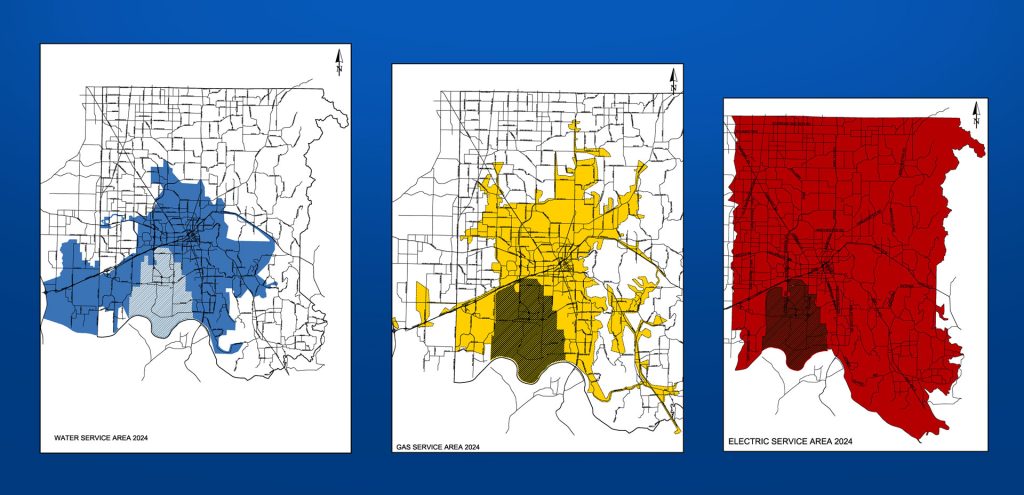
One goal of the CERP will be to identify modern technology resources, said Kelley.
“What’s happening now is that technology is evolving such that it still exists, but there is a desire to have smaller, more distributed energy resources,” Kelley said. “We call them DER, Distributed Energy Resources. That could be things like rooftop solar, garage storage, diesel generators that are used to back up a school or a grocery store.
“Those distributed energy resources are being pooled and collectively used for the benefit of the whole electric system.”
The energy plan will also be tasked with preparing for future energy needs.
Kelley said Huntsville Utilities’ customer count grew in the last 10 years by 25%.
“It has been increasing more rapidly in recent years. So we’re up, we’re growing about 3 to 4% a year at this point,” he said. “I think last year we added 10,000 homes and businesses to give you a frame of reference.”
Despite 25% growth, Kelley said due to successful gains in energy efficiency the amount of energy consumed has remained consistent.
“Even though we’re talking about 25% growth, the amount of energy that we in Huntsville use every year has been flat,” Kelley said. “So we’ve added 25% more customers and we’re selling the same amount or a little bit less energy than we did 10 years ago.”
Kelley said while it’s the same amount overall the demand on energy resources during spikes is not.
“Energy has to be generated and consumed at basically the same time,” he said. “What we call that in our industry is energy demand. What is the demand of energy at any one moment in time, that demand, part of the bill, that demand part of our requirements has been shooting up like a rocket.
“On a cold winter day and a hot summer day, we are using more energy than ever before. But over the span of a month or over the span of a year, we’re using less.”
Kelley said these spike electric loads require tremendous loads of energy.
“And that’s what’s prompting us to say just building a big power plant that sits there in hums and runs is not the solution,” he said. “We need dynamic resources that can scale up and down quickly to match the load which is going up and down quickly. And those resources are best deployed on a distributed basis across the community or across the region and not just sitting in a couple of big power plants run by TVA.”
Energy efficiency has long been a goal of Huntsville Utilities.
“Huntsville has a great story to tell for energy efficiency,” Kelley said. “It is morally appropriate for us to help our customers use less of our product.”
Kelley cites the Huntsville Utilities’ partnership with Toyota for a 30-megawatt solar energy system. The utility company purchases Toyota’s excess renewable energy from the 168-acre solar project.
“It’s great for them and helps them reach some of their corporate goals,” he said. “But the power that we are purchasing from Toyota off of that 30 MW solar is cheaper than the power that we are paying TVA. So again, that benefits all of our customers. So we’re looking for other innovations.”
Appointments to the Energy Task Force will be made by Mayor Tommy Battle (three appointments), City Council (five appointments), Huntsville Utilities (three appointments), and the Huntsville-Madison County Chamber of Commerce (one appointment).
Kelley said he’s looking forward to the process.
“We’ll get a total of 12 people and we hope that they are coming to lean in and help us consider these broad issues,” he said.
“This is to help us be a better partner with TVA so that we can step forward with local solutions that take care of Huntsville’s power, resiliency and sustainability needs, but also be a better partner in the region so that our growth is something that is where we’re adding innovation to our growth to help the region.”
The task force is expected to conclude its work by the end of next summer when it will present the CERP document to Huntsville Utilities’ boards and City Council. The panel will sunset at the end of 2025.
“What I hope to have come out of this is for Huntsville really to be taking the lead in the region on proactive engagement of its community,” said Kelley. “And how do we use our energy wisely.
“We have the opportunity to start rolling out new innovative programs here and our community benefits early. And that’s something Huntsville has always done very well.”


